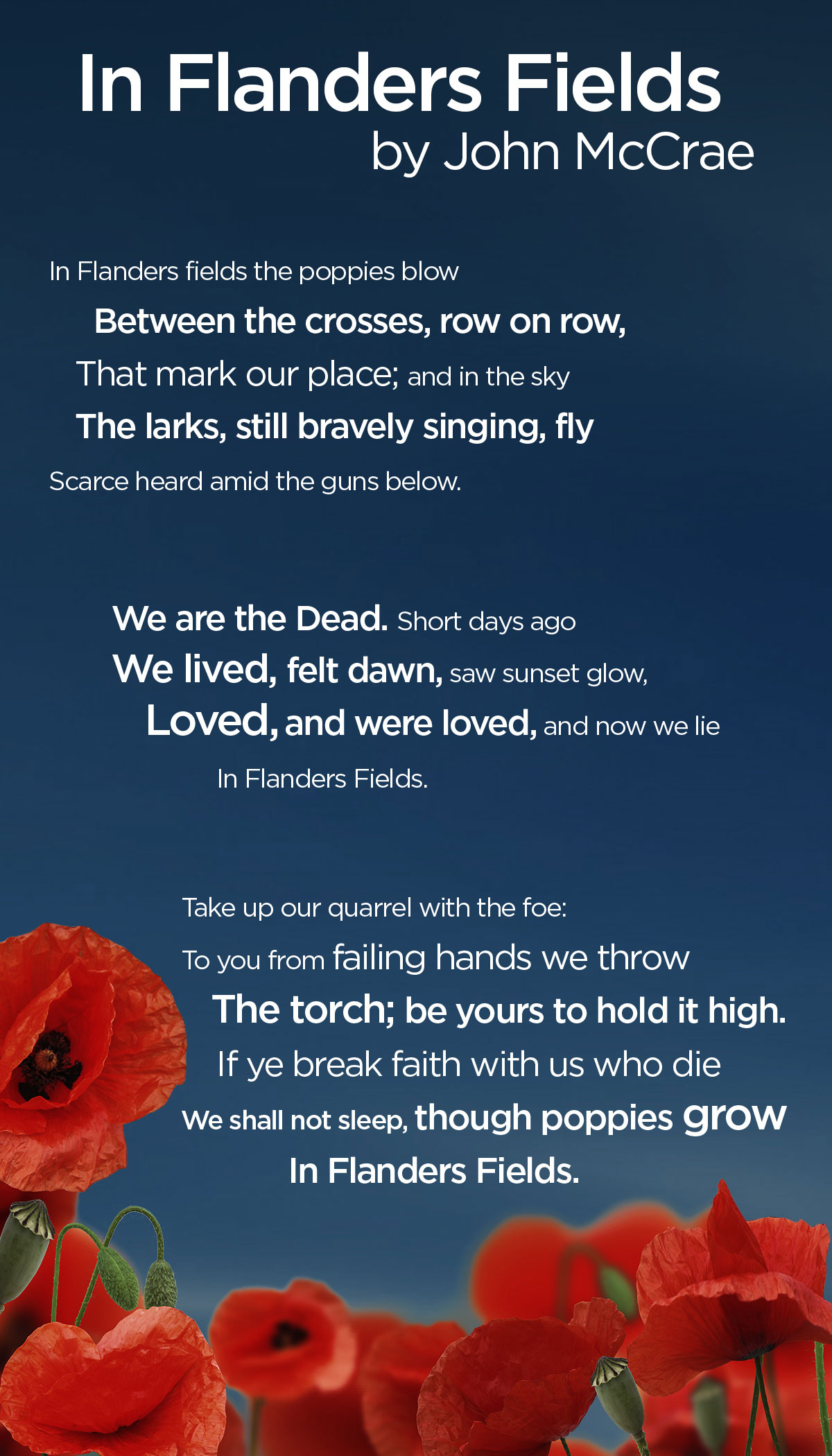Most Canadians know that the iconic war poem In Flanders Fields was written by Lt.-Colonel John McCrae 100 years ago. Most Canadians don’t know, however, the correct first verse, according to a new survey released ahead of Remembrance Day.

The Ipsos poll conducted on behalf of the Vimy Foundation found that while 76 per cent of Canadians could correctly identify In Flanders Fields as a Canadian poem written during the First World War, only 30 per cent could correctly identify the first verse.
McCrae, who was born in Guelph Ont. on Nov. 30, 1872, wrote the World War One poem in 1915 during the Second Battle of Ypres in Belgium.
READ MORE: ‘Women should be proud’: Canadian women honoured for roles in world wars
The famous poem opens with the line “In Flanders fields the poppies blow, between the crosses row on row.” However, 52 per cent of respondents misidentified the opening line as “In Flanders fields the poppies grow.”
The survey also found that six in ten Canadians could correctly identify McCrae as the poems author.

Get breaking National news
Timothy Findley was among the leading incorrect candidates with 15 per cent of Canadians thinking he wrote the poem. Stephen Leacock was next at eight per cent and Margaret Atwood with six per cent.
Despite not necessarily knowing the words a majority of Canadians support designating McCrae’s poem as the country’s “National Poem by an Act of Parliament.”
- ‘Alarming trend’ of more international students claiming asylum: minister
- TD Bank moves to seize home of Russian-Canadian jailed for smuggling tech to Kremlin
- Why B.C. election could serve as a ‘trial run’ for next federal campaign
- Canadian government’s satellite deal has Tories calling for Elon Musk involvement
READ MORE: How one Manitoba store is putting Remembrance Day before Christmas
Seventy four per cent of Canadians agreed that the poem should be given this honourary status, while 26 per cent disagreed.
A separate poll commissioned by Historica Canada found that 82 per cent of Canadians believe Remembrance Day is as relevant today as when it began nearly a century ago. However, only 54 per cent feel today’s youth “do a good job” of honouring veterans, and slightly fewer than half (46 per cent) think young people understand the sacrifices of those who have died in war.
Since publication, In Flanders Fields has come to symbolize the sacrifices of all who fought in the First World War and later became the reflection of remembrance for all wars.
The poppy became the symbol of post-war commemoration in many Allied countries and continues to be a part of Remembrance Day ceremonies in Canada.
Below is the full text of In Flanders Fields
One thousand and six Canadians were interviewed online by Ipsos between Oct. 29 and Nov. 4. The sample’s composition was weighted to reflect the country’s adult population according to Census data.
The poll is accurate to within plus or minus 3.5 percentage points 19 times out of 20 had all Canadian adults been surveyed.








Comments